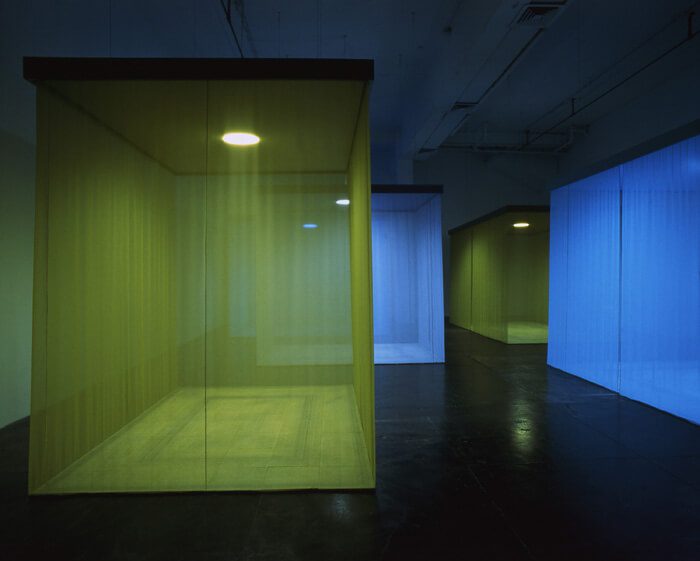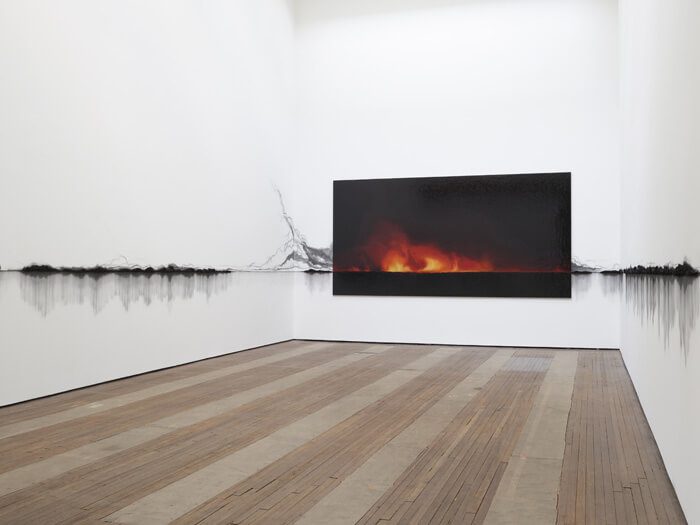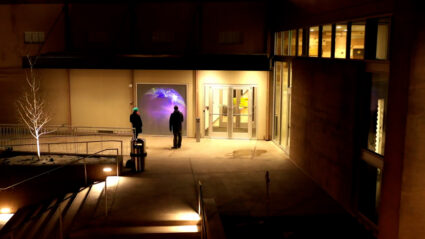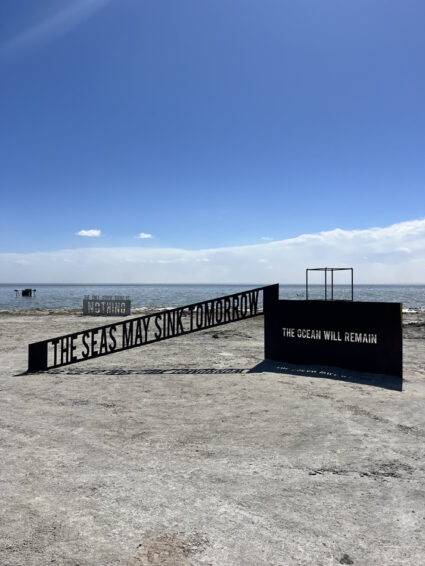Elemental, Teresita Fernández’s mid-career survey at Phoenix Art Museum elevates the intersections of history, culture, and materiality.
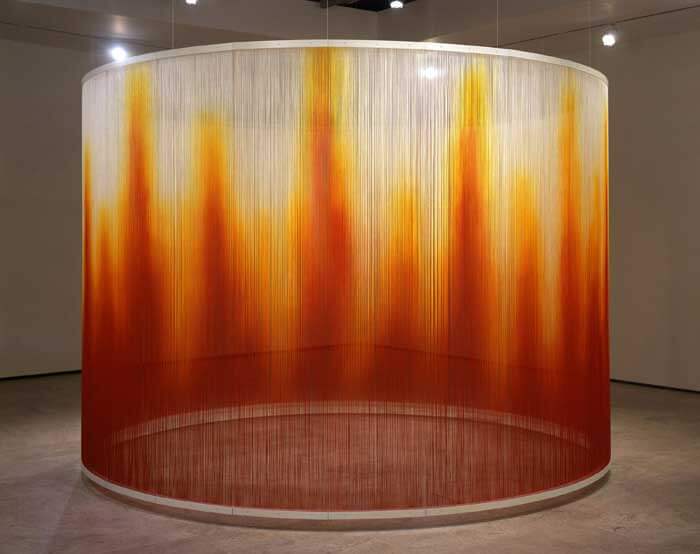
October 1, 2020–January 3, 2021
Phoenix Art Museum, Phoenix
Trial by fire. It’s an apt descriptor for the present moment in American life, where individual and collective identities are continually forged amid a global pandemic, charred political terrain, and rampant racism. Entering a large, stark white gallery dotted with fire-related works by Teresita Fernández, the space itself conveys the ways museums are among the many landscapes the artist is exploring—and questioning.
Fernández elevates the intersections of history, culture, and materiality here, using both a conceptual framework of landscapes and materials wrought from the earth. The mid-career survey spanning more than two decades of her work features over fifty pieces from small-scale drawings to monumental installations referencing a wide swath of the natural world, including the sky, the sea, and minerals extracted from the earth.
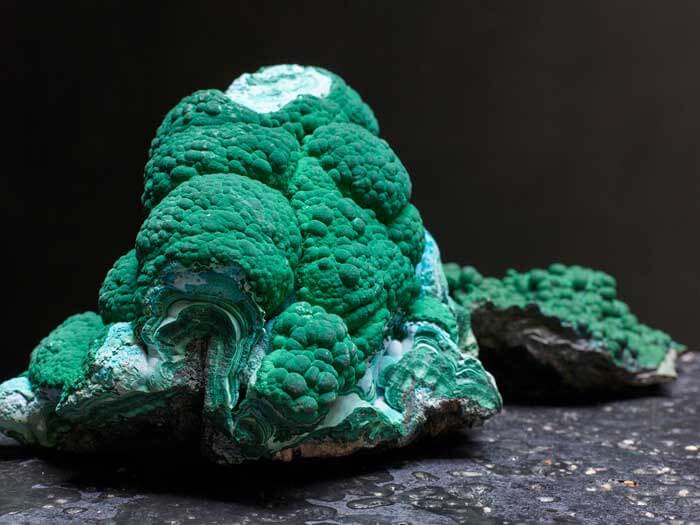
For this New York-based artist, born in Miami to parents who immigrated from Cuba, landscapes aren’t static objects. Instead, they’re fluid connections forged between interior and exterior worlds in a perpetual dance of destruction, creation, and renewal. It’s a perspective powerfully and beautifully conveyed through diverse media such as burnt paper, charcoal, glass, glazed ceramic, graphite, magnets, metals, mylar, oculus light, and shells.
For Fire (United States of the Americas) 3, the artist uses charred wood to create a map of discontiguous states. For Viñales (Reclining Nude), she tops pedestals with green malachite referencing the female form and body as landscape.
Viewers move between large, open areas where negative space signals the erasure prevalent in colonizing culture and intimate galleries that convey the existential import of individual and collective actions. Like COVID-19, which has deepened the fissures that fuel economic and health disparities, the artist’s work highlights the peril of unjust relationships among people, animals, and land, calling viewers to consider their complicity and power to effect change.
